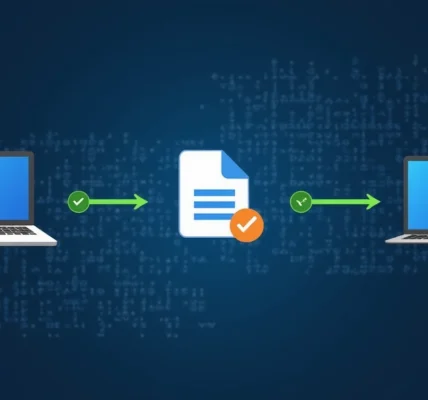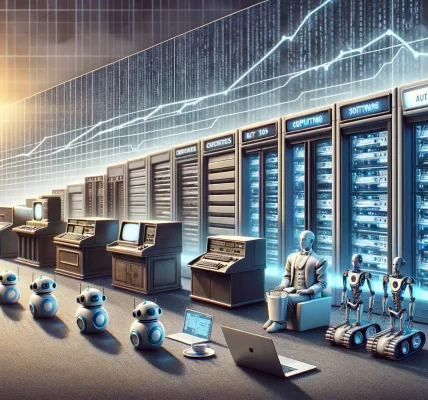Understanding Open-Source Software and Its Appeal
The Heart of Open-Source: Freedom and Collaboration
Imagine a world where the blueprints to build anything—from software to rocket ships—are freely available for anyone to tinker with. That’s the essence of open-source software. It’s not a business model; it’s a philosophy, one that feels almost rebellious in its pure rejection of gatekeeping. At its core, open-source is about being part of something bigger than yourself—a shared mission to solve problems, create tools, and innovate without borders.
What makes open-source so irresistibly appealing? Well, for starters:
In many ways, it’s like a potluck dinner where everyone brings their special dish. No monopolies, no exclusivity—just an open invitation to bring your best ideas to the table.
The Role of Niche Geek Communities in Fostering Open-Source Projects
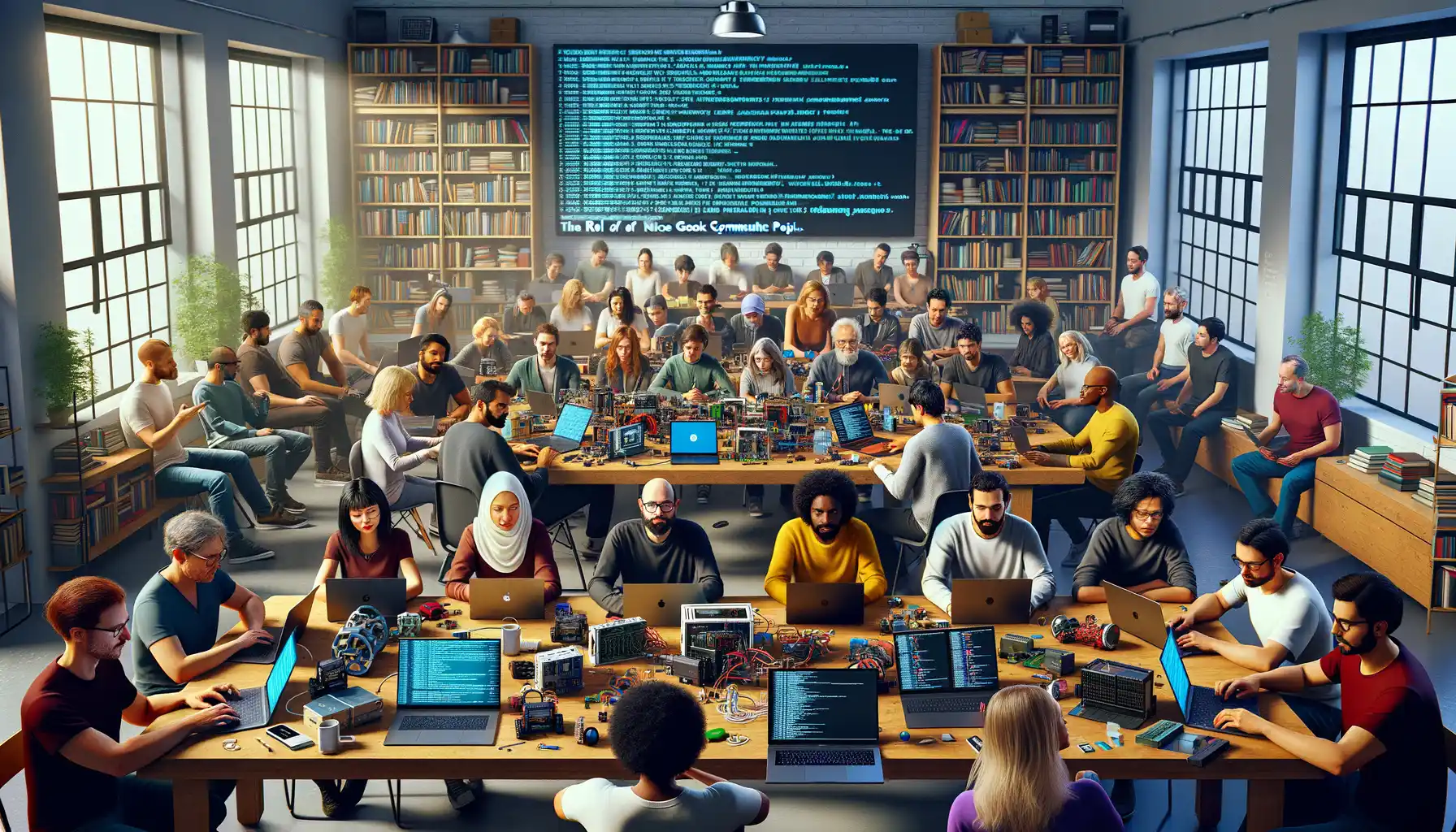
How Passion-Driven Communities Spark Innovation
Picture this: a small group of die-hard enthusiasts, gathered on a little-known forum or Discord server, passionately debating the ins and outs of software quirks no one else has even heard of. This is the heartbeat of many niche geek communities—a place where ideas are born, tested, and transformed into something extraordinary.
Niche geek communities thrive because they share not just interests, but obsessions. Whether it’s tabletop RPGs, retro gaming emulation, AI art tools, or 3D printing hacks, these groups are magnets for problem-solvers. Open-source software fits right into this ecosystem, offering members an open canvas to tinker, improve, and collaborate. No corporate red tape. No one-size-fits-all. Just pure, untamed creativity.
Here’s the beauty: in these spaces, even the tiniest needs can spark massive breakthroughs. Someone might post, “Hey, I wish this modding tool had X feature,” and within days—or hours—a programmer jumps in with, “Hold my coffee.” The result? An evolving, ever-improving project that reflects the community’s exact needs.
- Forums like Reddit’s r/learnprogramming nurture friendly advice and feedback loops.
- GitHub repositories often become collaborative playgrounds for niche coding challenges.
This isn’t just coding; it’s culture-building. And everyone’s invited.
Key Examples of Open-Source Success in Geek Culture
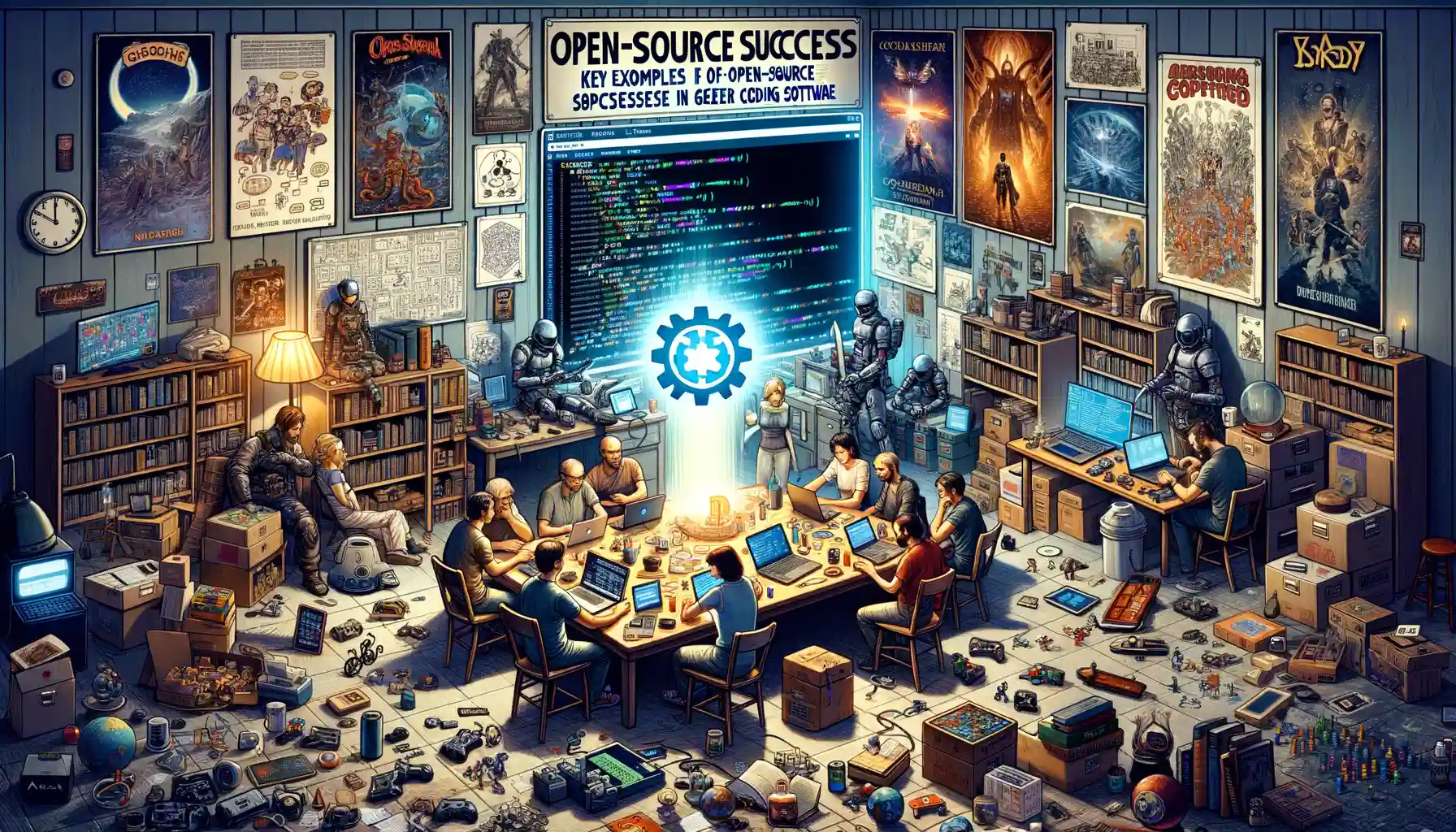
When Open-Source Becomes Legendary
Open-source projects aren’t just tools—they’re part of geek legends, celebrated like cult classics at a comic con. Think about it: the allure of collaboration, the thrill of tweaking code to perfection, and the pride in saying, “Yeah, I contributed to that.” Some open-source successes have become downright iconic. Let’s dive into a few.
- Linux: The ultimate geek badge of honor. Linux isn’t just an operating system—it’s a movement. From powering NASA’s rovers on Mars to your favorite Raspberry Pi project at home, it’s proof that open-source can be both functional and aspirational.
- Blender: Once niche, now a titan in the creative world. This 3D modeling software is free, stunningly powerful, and beloved by animators, game designers, and filmmakers alike. The cherry on top? It thrives thanks to a passionate community that constantly refines its features.
- VLC Media Player: Behind its simplicity lies a powerhouse. VLC is that trusty friend who never crashes or lets you down, playing any file format you throw its way—all while staying sleek, open, and accessible.
These projects are more than software; they’re symbols. They’re monuments built by people who share a love for tinkering, innovating, and handing the keys over to anyone who’s curious enough to join. If that isn’t geek culture distilled, what is?
Challenges and Misconceptions About Open-Source Software

Breaking the Myths Surrounding Open-Source Software
Open-source software often gets a bad rap, and honestly, some of these misconceptions stick like gum on your favorite comic book cover. Let’s bust a few myths wide open, shall we?
- “It’s unreliable because it’s free.” Why do we equate price with quality? Open-source projects like Linux and Blender are proof that passionate, highly skilled developers can deliver tools so finely tuned, they rival (and often surpass) their pricey corporate counterparts.
- “It’s impossible to use unless you’re a programmer.” Nope! While some open-source tools may require a bit of tinkering, many have become user-friendly thanks to thriving online communities that turn bug-filled puzzles into polished gems.
The Real Struggles Open-Source Faces
Let’s get real: open-source isn’t all rainbows and raging Reddit threads. Developers often battle burnout after pouring hours into unpaid, thankless work. It’s like organizing a gaming convention only to have half the attendees forget to say “thank you.”
Then there’s the issue of funding. Unlike big tech firms, open-source teams don’t have bottomless pockets. Supporting servers, paying licenses for dependencies—these costs add up. Without resources, even brilliant ideas sometimes flicker out before reaching their potential. Now that’s heartbreaking.
The Future of Open-Source in Niche Cultures
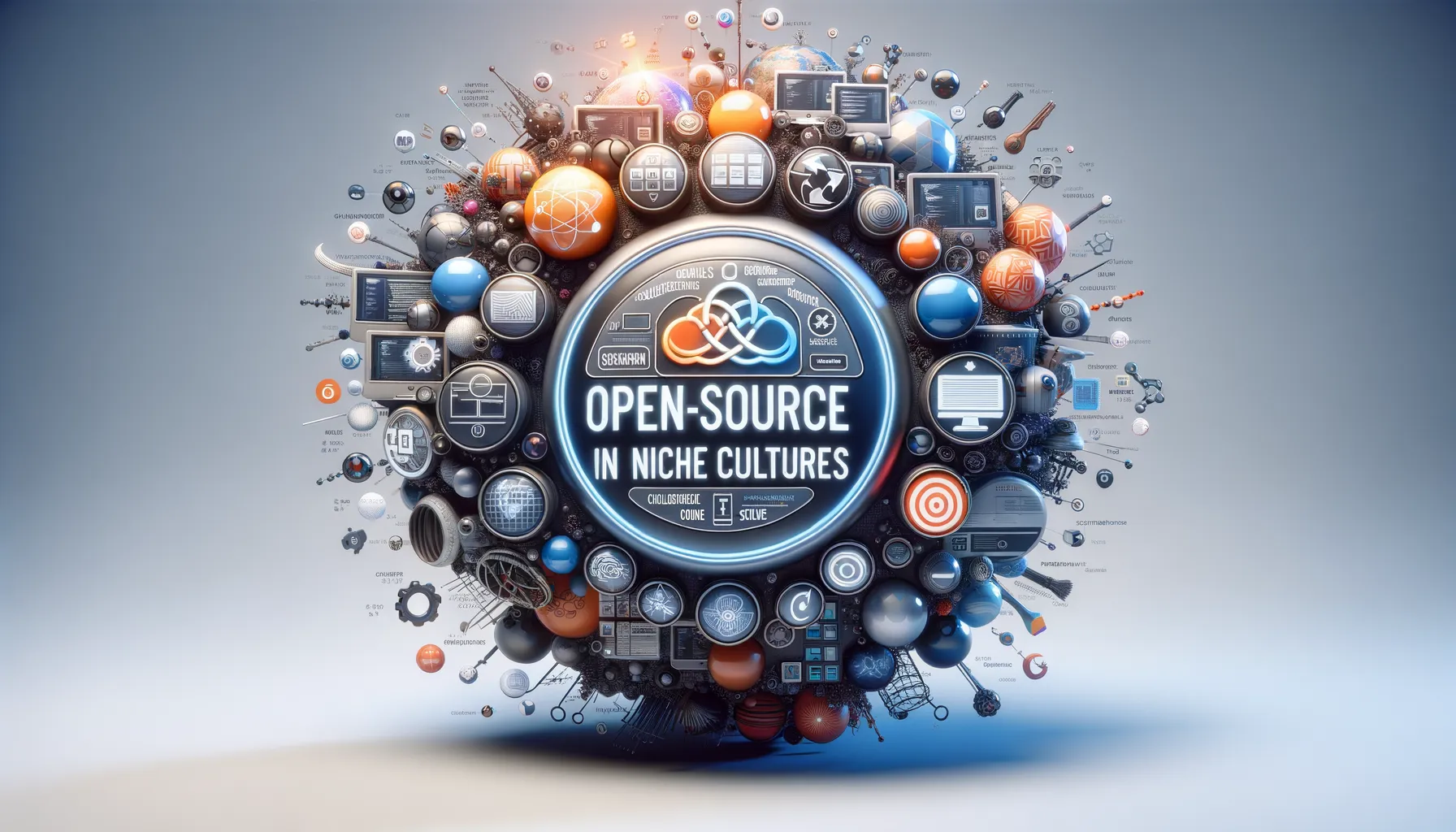
Where Open-Source Meets Passion and Purpose
The future of open-source in niche cultures is as electric and unpredictable as the geek communities driving it. Imagine a group of dedicated fans of a retro RPG, scattered across the globe, pooling their skills to resurrect a game engine for modern platforms. It’s not just coding; it’s an act of love. This is the heart of open-source in niche spaces—a passionate rebellion against tech giants dictating what can and can’t exist.
Expect to see more of this grassroots magic in areas where creativity thrives:
- Fan-made tools for cultivating tabletop RPG stories or automating tournament stats for obscure esports.
- Mods and customizations transforming favorite games, like bringing a medieval fantasy twist to a sci-fi universe.
- Digital archives preserving fanfiction and art that would otherwise vanish into the digital ether.
These projects prove one thing: open-source isn’t just about code—it’s about belonging. Geek culture will steer these innovations into hyper-personal corners, where individuals create because they care deeply, not because there’s a paycheck attached.
Beyond the Code: Collaboration and Chaos
Why is open-source booming in these niche galaxies? It’s because these spaces value freedom over formality. Picture a chaotic orchestra, where everyone has a different instrument, but somehow, out of wild experimentation, symphonies emerge. That’s how these projects operate—an unstructured brilliance, fueled by late-night discussions on Discord and Reddit threads that spiral into collaborative gold.
What excites me most is the rise of hybrid platforms mixing open-source ideals with communal storytelling. Think of something like Twine for interactive fiction or Godot for independent game developers. The future will hold even wilder tools tailored to ultra-specific subcultures: anime fans designing visual novels, historical reenactors crafting immersive VR worlds.
As niche cultures grow bolder and more connected, open-source could become their universal language—a way of saying: “This is ours, and we built it together.”

